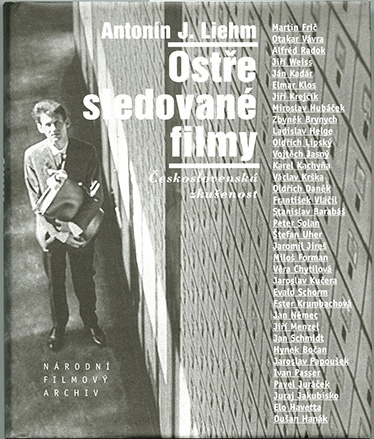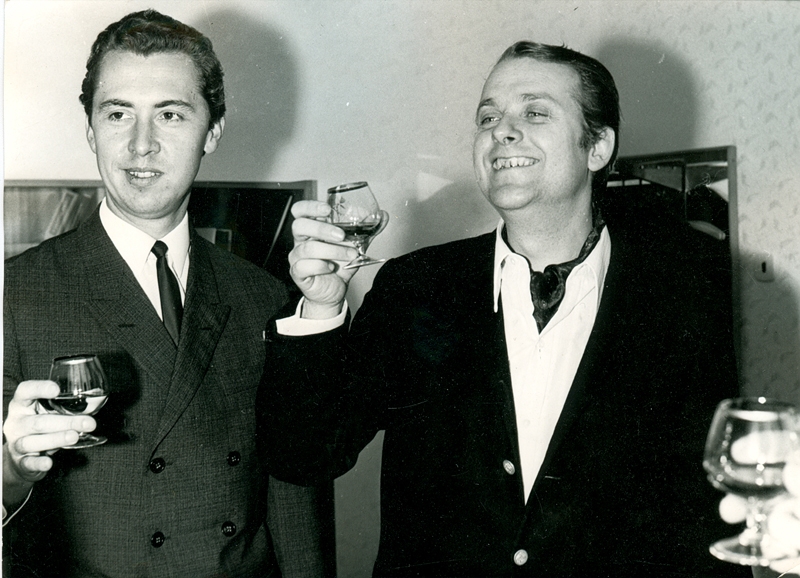Minimum query is 3 letters.
from CLOSELY WATCHED FILMS
excerpts from Antonín J. Liehm interview with Jan Němec from July 1968
“If one lives in a society, which is at its core illiberal, it is the duty of every thinking man to attack this lack of liberty in every way he can.” […] “My three [early] feature films are about men without freedom. In Diamonds of the Night the man is not free owing to the most outward pressure called war. In A Report on the Party and Guests people cause their own lack of liberty by willingness to become collaborationists. In Martyrs there is no freedom or ability to fulfill a kind of foolishness or dreams about love and achieve happiness due to one’s ineptitude.”
In response to Liehm’s question about the esthetics he used in his early works and if it corresponded with the times, Němec said:
“In principal, I would definitely not change anything about the cinema language I used. I would call it dreamy realism, somewhere on the verge between a vision and reality. Or rather: a picture of the real world through visions. If I were to make Report today, the esthetic framework would remain the same, but something would still be changed. On the surface it would probably be harsher, more naturalistic. I could not do that back then. Or Martyrs. In my head today it would definitely be a film made in color – full of overly estheticized or even mannerist splendor. I would, simply said, weight the means of storytelling more in relation to the theme, the audience, and the poetics.”
“In all my films, which I have made so far [in 1968], I was always worried that I would not be allowed to finish them; that someone would ban them [before they’re even made], and so I was hurrying in order for them to be absolutely mine, no lingering in vain, no stopping. So a change in circumstances would definitely influence their esthetics.”
translated from Ostře sledované filmy (2001 edition from Národní filmový archív); also published in English in 1974 by International Arts and Sciences Press, Inc.
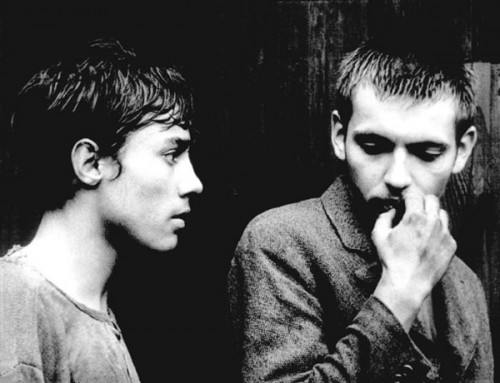 DIAMONDS OF THE NIGHT (Démanty noci, 1964)
Němec’s first feature length film follows the escape of two young concentration camp prisoners through the woods of Sudetenland and the ensuing pursuit of them.
DIAMONDS OF THE NIGHT (Démanty noci, 1964)
Němec’s first feature length film follows the escape of two young concentration camp prisoners through the woods of Sudetenland and the ensuing pursuit of them.
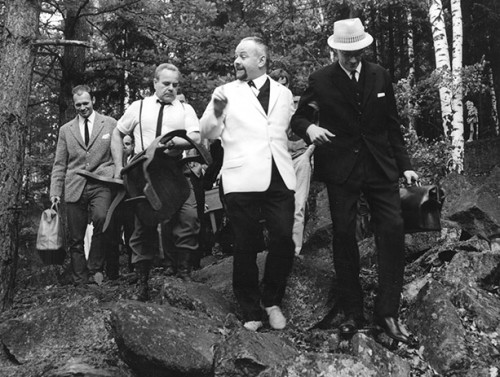 THE PARTY AND THE GUESTS (O slavnosti a hostech, 1966)
An examination of the mechanics of power and the ways people collaborate in the reality that oppresses them, the film follows a group of middle-aged bourgeois friends as they picnic in the woods on their way to a celebration.
THE PARTY AND THE GUESTS (O slavnosti a hostech, 1966)
An examination of the mechanics of power and the ways people collaborate in the reality that oppresses them, the film follows a group of middle-aged bourgeois friends as they picnic in the woods on their way to a celebration.
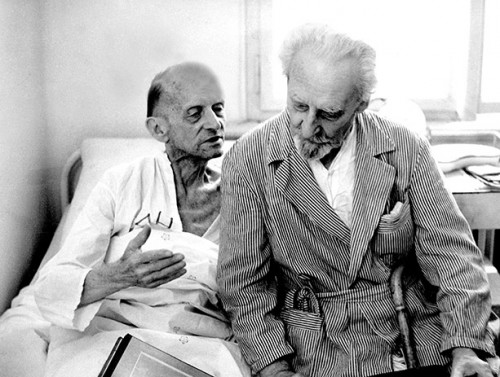 PEARLS OF THE DEEP (Perličky na dně, 1966)
A manifesto of the Czechoslovak New Wave, this anthology of five short films by five rising directors is based on a book by the celebrated writer Bohumil Hrabal.
PEARLS OF THE DEEP (Perličky na dně, 1966)
A manifesto of the Czechoslovak New Wave, this anthology of five short films by five rising directors is based on a book by the celebrated writer Bohumil Hrabal.
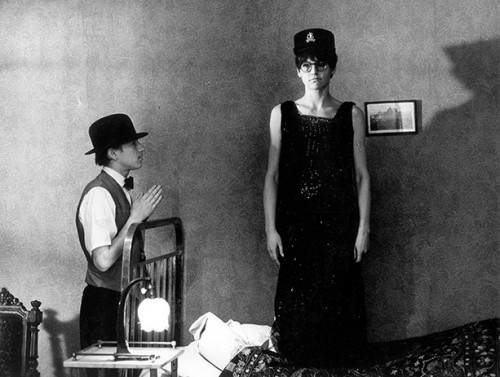 MARTYRS OF LOVE (Mučedníci lásky, 1967)
The most perfect embodiment of Němec’s vision of a film world independent of reality. Mounting a defense of timid, inhibited, clumsy, and unsuccessful individuals, the three protagonists are a complete antithesis of the industrious heroes of socialist aesthetics.
MARTYRS OF LOVE (Mučedníci lásky, 1967)
The most perfect embodiment of Němec’s vision of a film world independent of reality. Mounting a defense of timid, inhibited, clumsy, and unsuccessful individuals, the three protagonists are a complete antithesis of the industrious heroes of socialist aesthetics.
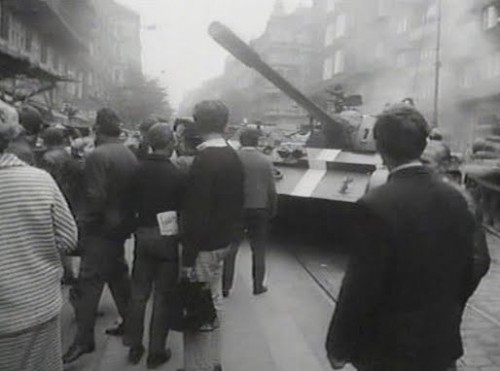 ORATORIO FOR PRAGUE (1968)
With film stock and camera at his disposal, director Němec was ready to document the invasion by Soviet tanks in August 1968, which crushed the democratization process of the so called Prague Spring.
ORATORIO FOR PRAGUE (1968)
With film stock and camera at his disposal, director Němec was ready to document the invasion by Soviet tanks in August 1968, which crushed the democratization process of the so called Prague Spring.
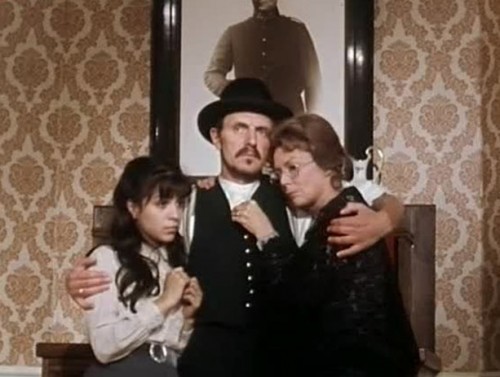 METAMORPHOSIS (Die Verwandlung, 1975)
Taking a typically personal approach, Němec depicts Samsa’s world through a subjective camera, emphasizing his inner world and his observation of shocked family and his surroundings.
METAMORPHOSIS (Die Verwandlung, 1975)
Taking a typically personal approach, Němec depicts Samsa’s world through a subjective camera, emphasizing his inner world and his observation of shocked family and his surroundings.
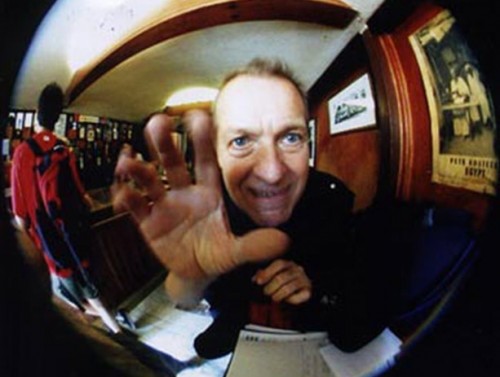 LATE NIGHT TALKS WITH MOTHER (Noční hovory s matkou, 2001)
Experimenting with digital video formats, this counterpart to Kafka’s Letter to Father finds the director probing his own psyche in the form of a confessional dialogue with his long deceased mother.
LATE NIGHT TALKS WITH MOTHER (Noční hovory s matkou, 2001)
Experimenting with digital video formats, this counterpart to Kafka’s Letter to Father finds the director probing his own psyche in the form of a confessional dialogue with his long deceased mother.
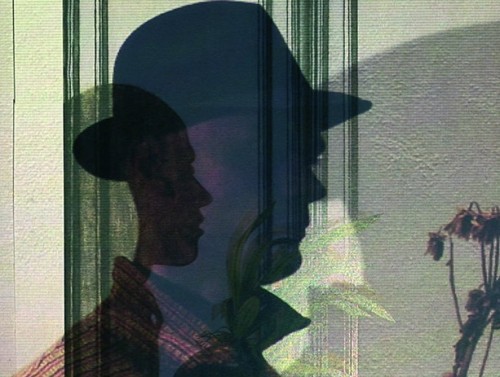 TOYEN (2005)
In one of the most enigmatic films of his career, Němec uses an abstract structure to create this portrait of revered Surrealist painter Toyen. The film, true to the subject’s own style, is an idiosyncratic vision that revisits the most oppressive period of her life.
TOYEN (2005)
In one of the most enigmatic films of his career, Němec uses an abstract structure to create this portrait of revered Surrealist painter Toyen. The film, true to the subject’s own style, is an idiosyncratic vision that revisits the most oppressive period of her life.
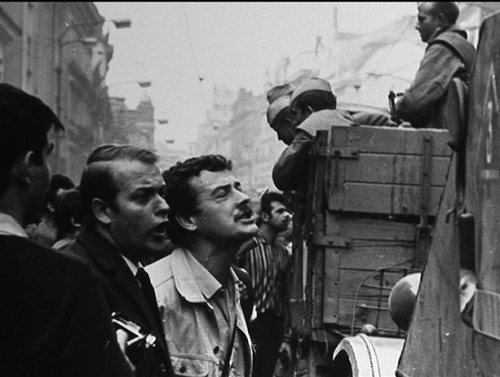 THE FERRARI DINO GIRL (Holka Ferrari Dino, 2009)
While shooting a documentary about the exciting and hopeful period known as the Prague Spring, Němec and his crew found themselves watching and filming in horror as the Soviets invaded Czechoslovakia in August 1968.
THE FERRARI DINO GIRL (Holka Ferrari Dino, 2009)
While shooting a documentary about the exciting and hopeful period known as the Prague Spring, Němec and his crew found themselves watching and filming in horror as the Soviets invaded Czechoslovakia in August 1968.
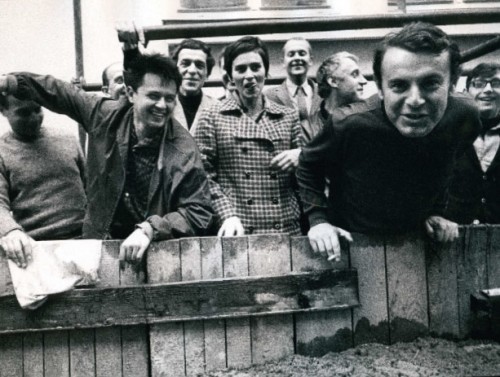 GOLDEN SIXTIES: JAN NĚMEC (Zlatá šedesátá, 2011, dir. Martin Šulík)
An illuminating portrait of Jan Němec from a 27-part TV series about masters of the Czechoslovak New Wave.
GOLDEN SIXTIES: JAN NĚMEC (Zlatá šedesátá, 2011, dir. Martin Šulík)
An illuminating portrait of Jan Němec from a 27-part TV series about masters of the Czechoslovak New Wave.
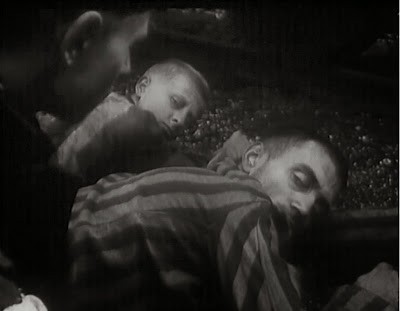 A LOAF OF BREAD (Sousto, 1960)
Němec’s graduation film follows the story of starving prisoners plotting to steal a piece of bread from a parked train in preparation for their escape.
A LOAF OF BREAD (Sousto, 1960)
Němec’s graduation film follows the story of starving prisoners plotting to steal a piece of bread from a parked train in preparation for their escape.
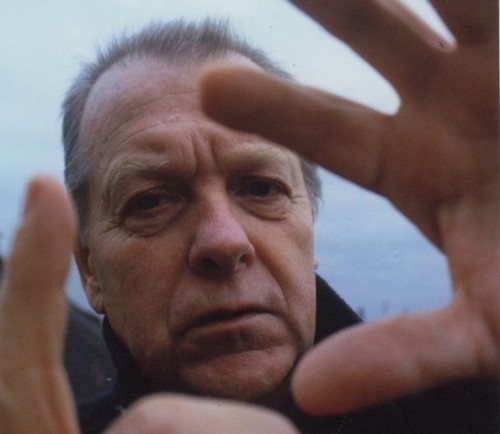 MOTHER AND SON (Moeder en zoon, 1967)
An absurdist tale about a doting mother of a brutal torturer.
MOTHER AND SON (Moeder en zoon, 1967)
An absurdist tale about a doting mother of a brutal torturer.
COMEBACK COMPANY
For press and booking inquiries:
To sign-up for our newsletter
email us with "newsletter" in the
subject line:
Comeback Company 2014
Design by Parallel Practice
© All rights reserved.

